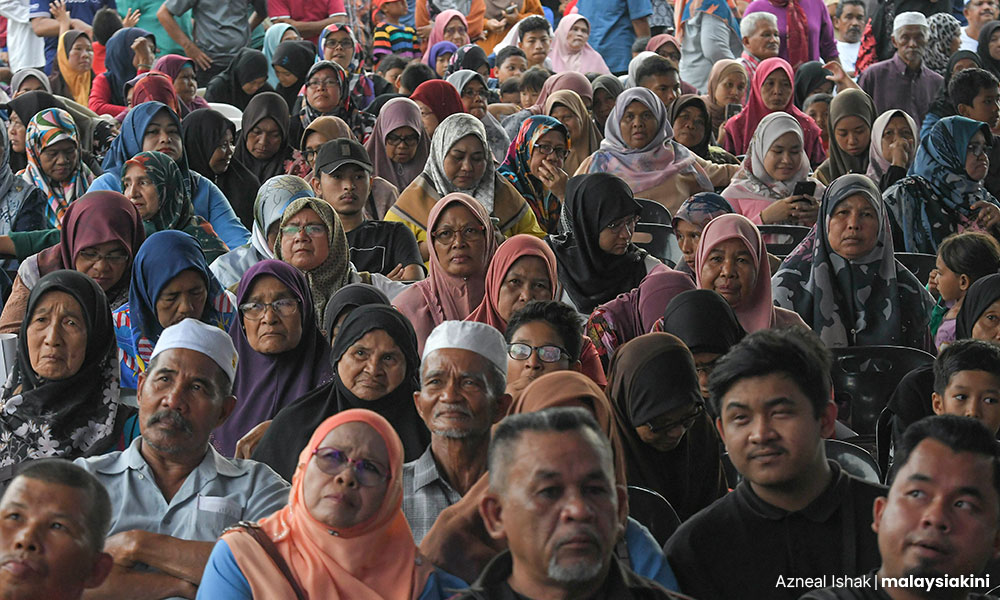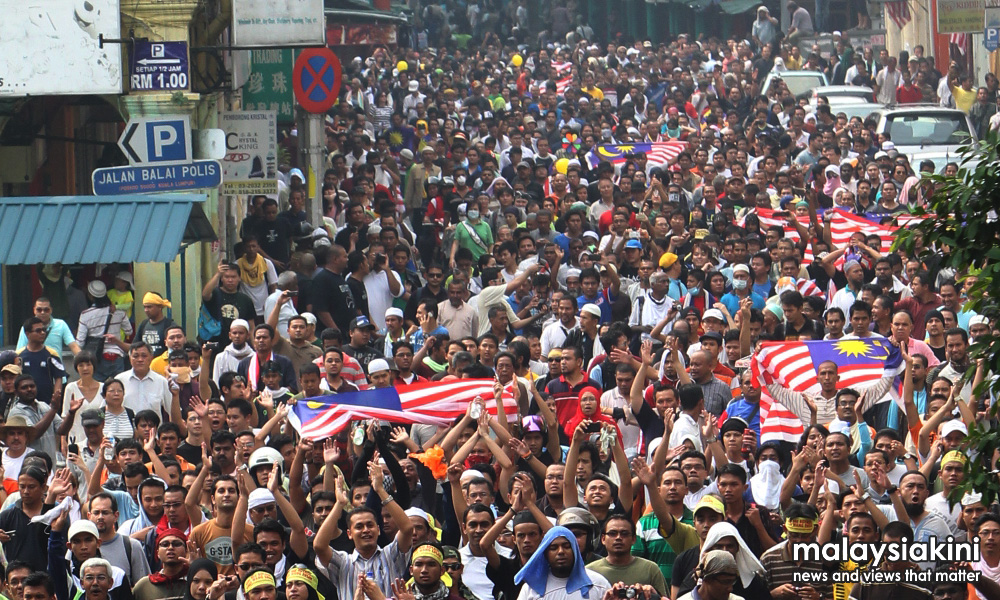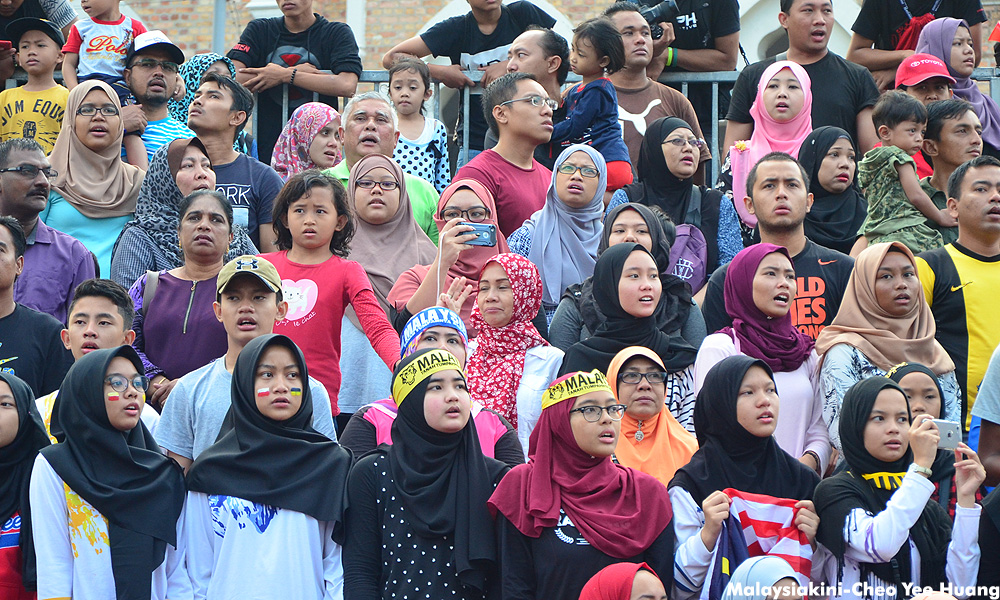Upon posting a promotional image showcasing the cast of my upcoming play “Leela Jhansi” on social media, I read a comment that stopped me in my tracks.
The comment read: “Why are dark-skinned Indians cast for the role of the villains? Is it merely by accident or was it purposely designed in such a way?”
The person behind the message likely felt offended by what he perceived as a perpetuation of harmful stereotypes. To him, casting dark-skinned actors as villains might have reinforced negative associations between skin colour and morality, playing into deeply ingrained biases within our society.
I understand how such portrayals could evoke feelings of frustration and disappointment. As a minority in Malaysia, Indians often face stereotypes and discrimination, particularly associating their dark skin with negative traits such as inferiority, criminality or low social status.
As a minority in any society, where power is disproportionately held by the majority, it can often feel like walking a tightrope, constantly navigating a landscape where one’s identity is subject to prejudice. The power imbalance makes it easier for members of the majority to dismiss and invalidate the concerns of minorities.
While it is common to observe individuals from minority groups feeling offended due to the challenges they face, it’s quite uncommon and honestly surprising to see members of a majority group taking offence so readily.
The Malay sensitivity
A few years ago, I staged a comedy play titled “Tales from Malaysia Baru” which highlighted the complex dynamic within the Malaysian multiracial and multireligious society.
I believe satire and comedy can serve as powerful tools for fostering understanding and unity. As such, I made a conscious effort to poke fun at the habits, lifestyles and cultural practices of the Malays, Chinese and Indians alike, to promote self-reflection and mutual acceptance.

However, the response I received from the audience revealed differing reactions based on their race.
Non-Malay audience members seemed to embrace the spirit of the play, laughing at themselves and their fellow community members’ quirks and foibles. I was quite happy to observe this as the willingness to engage in self-deprecating humour reflects a level of self-awareness and confidence that can contribute to social cohesion and resilience.
Conversely, some Malay audience members appeared less receptive to being the target of jokes, even though they were willing to laugh at the expense of others. A few of them walked out of the theatre hall in the middle of the performance and some of them approached me after the show to express their discomfort about the script being insensitive to Malays.
“Is this a season to bash the Malays?” they asked me.
While the laughter made everyone else feel good and worked as a social glue, it failed to do the same for some Malay audience members. To be honest, their response and reactions did not upset me in any way. In fact, I was more intrigued as to why they were offended in the first place.
As the majority race in Malaysia, one would expect the Malays to be confident and secure in their position within our society. With numerical superiority, elected government officials to protect their needs, and greater access to resources and opportunities, the Malays have considerable influence and power.
Seeing them behave in a fragile manner and being easily offended did not make any sense to me. What are they so upset about? Why are they so defensive? Why are they so insecure? After all, no one is threatening their cultural, religious or social dominance.
Choosing to be offended
Today, we see more individuals from the majority race taking offence compared to the minorities. In fact, they take offence at even minor conflicts and differences of opinion.
Instead of being a confident majority race who should be leading by example, demonstrating resilience, open-mindedness, tolerance and a willingness to engage constructively with diverse perspectives, we see more Malays becoming a giant ball of oversensitivity.
I don’t have to mention the recent cases in Malaysia where the Malays seem to be outraged and offended. Like snowflakes, it seems like many actively search for things to be angry about, eagerly amplifying and spreading outrage, one case after another.

But why is this happening? How did we get here in the first place?
And what do they get in return for portraying themselves as victims who need attention, sympathy, support and validation?
By constantly putting themselves in the position of serious hypersensitivity and very low self-esteem, they only make themselves seem paranoid about everything around them.
I must say, living in a society where the majority race is often paranoid that “someone or something is out to get them,” is very exhausting indeed – especially for the minorities.
Not only do we end up having to walk on eggshells to protect their easily bruised feelings, but we also don’t get to address our own insecurities and outrages.
In fact, dealing with the Malay’s obsession with being offended most of the time, most minorities have grown a thicker skin!
Echo chamber
I believe the problem lies with the majority race who choose to surround themselves with those of similar lifestyles and beliefs. When all they see are opinions and thoughts they already agree with, it creates an “echo chamber” effect.
This fuels a culture where any dissenting view is not just different but is wrong. And they become convinced of the need to protect themselves from this perceived threat.
Joining others who share their sense of rage can be addictive. It makes them feel powerful and indispensable. And the rush of anger and adrenaline when they collectively feel offended must surely give them a kind of high.
I believe this is why some Malays are constantly searching for things to be offended about. They are quick to call out others for the smallest of perceived offences – especially on social media where it is easier to comment, screenshot, share and tag to stir up outrage.

Lucky for us, there are many Malays who celebrate diversity in our multiracial, multireligious Malaysia who take no part in this outrage culture. Being surrounded by people of different faiths, cultures, lifestyles and opinions has made them grow and progress as individuals and as a society.
Most likely, they have also grown thick skin and are not triggered easily. They are calmer, more rational and would perhaps only be outraged at something really important.
It is quite sad though, that while the majority race who are easily offended continue to express feelings of paranoia and insecurity, and the rest of us with thick skins just let them be, our country’s leadership isn’t doing anything to address the situation.
Even worse, they are enabling some politicians to capitalise on the fears and insecurities of the Malays for their own political gain.
Why isn’t our country’s leadership making any efforts to ease the tensions and paranoia of the Malays? I honestly don’t know.
But I do know one thing - while the majority race is becoming fragile and paranoid with a minority mindset, the minority race is growing confident, resilient and very much secured under their thick skins. - Mkini
FA ABDUL is a multi-award-winning playwright and director in the local performing arts scene, a published author, television scriptwriter, media trainer, and mother. Her ultimate mission in life is to live out of a small suitcase.
The views expressed here are those of the author/contributor and do not necessarily represent the views of MMKtT.




No comments:
Post a Comment
Note: Only a member of this blog may post a comment.